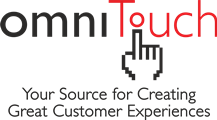We all took a personality test, so how do we use what we learned in our coaching conversations?
That’s what the Customer Service Manager asked me during a training program on coaching.
“We all took a personality test and I am like this ___ and my colleague is like that ___, So how do we bring the results of our personality tests into the quality coaching conversation?”
That’s a fair question.
One I hear now and then in our coaching classes.
So I asked this question in return
I usually advise folks to not answer a question with a question. It can be considered rude – even aggressive.
But my intention was to use this question to get us to dig deeper into what the answer might be. Here’s what I asked –
“Before we get into the coaching conversation, can you talk to each other about the ways you’re already using what you learned from the personality test in all of the other conversations that you’re having with the people around you?”
I continued…
“Because the quality coaching conversation is only one of a dozen possible conversations you’re having with your people throughout the course of the day.
For example, you observed something good, you observed something not so good, you praised something, you provided guidance on a task, you asked someone to stay late if they could. Maybe you even gave a performance review.
How have you used what you learned about someone else – via the personality tests – in these other conversations?”
Then I concluded by saying –
“Your answers here are clues to how you can apply what you know about someone in a coaching conversation.”
The room got quiet and I bet you can guess why
 It turned out that taking the personality test was kind of fun.
It turned out that taking the personality test was kind of fun.
And learning about what kind of people we were was also kind of fun.
But what folks had learned about each other hadn’t been put into any kind of formal practice.
It had been treated like a parlor game. And wasn’t appearing in any of the conversations that people had with each other.
It’s important to get to know the people you work with on an individual level
As you learn about the people you work with and they learn about you, the decisions you mutually make about working together end up applying to the entire relationship.
To all the conversations.
Not just the coaching conversation.
https://www.omnitouchinternational.com/dear-trainers-engagement-shouldnt-be-the-goal
Thank you for reading!
Thank you for reading this article today!
If you’d like to stay up to date on our articles and other information just send over your email address or add it to the contact form on our website.
Thank you!
Daniel Ord
www.omnitouchinternational.com
Photo by Nguyen Dang Hoang Nhu on Unspla





 Every organisation has its own purpose, its own set of Customers and its own style and brand. So by design, it should have its own kind of service too.
Every organisation has its own purpose, its own set of Customers and its own style and brand. So by design, it should have its own kind of service too. For example, in Email it’s important to write the way you speak and to use inverted pyramid writing when sharing content.
For example, in Email it’s important to write the way you speak and to use inverted pyramid writing when sharing content. It’s hard to be an Agent who is asked to practice on Customers.
It’s hard to be an Agent who is asked to practice on Customers. Interaction coaching is developmental in nature. And it’s always about both sides of the interaction.
Interaction coaching is developmental in nature. And it’s always about both sides of the interaction. Only Response Time contacts, such as Correspondence & Email, can have appropriate volume-based targets.
Only Response Time contacts, such as Correspondence & Email, can have appropriate volume-based targets. When it comes to Agents, choose the right measures for productivity – with a heavy emphasis on Adherence to Schedule – and combine them in an appropriate basket of KPIs to measure their performance.
When it comes to Agents, choose the right measures for productivity – with a heavy emphasis on Adherence to Schedule – and combine them in an appropriate basket of KPIs to measure their performance. And there’s no such thing as ‘balance’ here.
And there’s no such thing as ‘balance’ here.